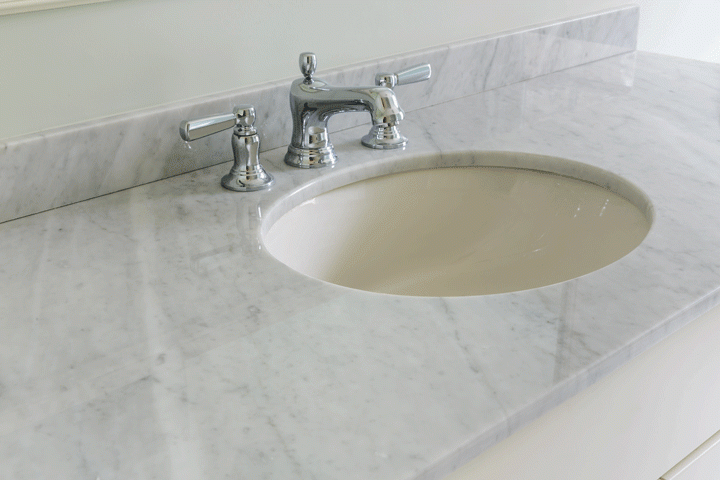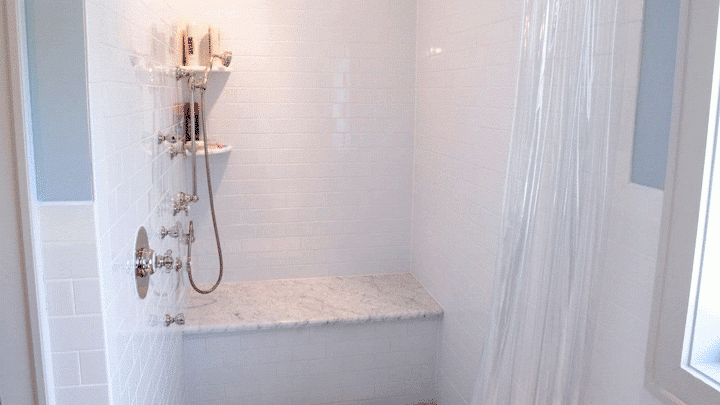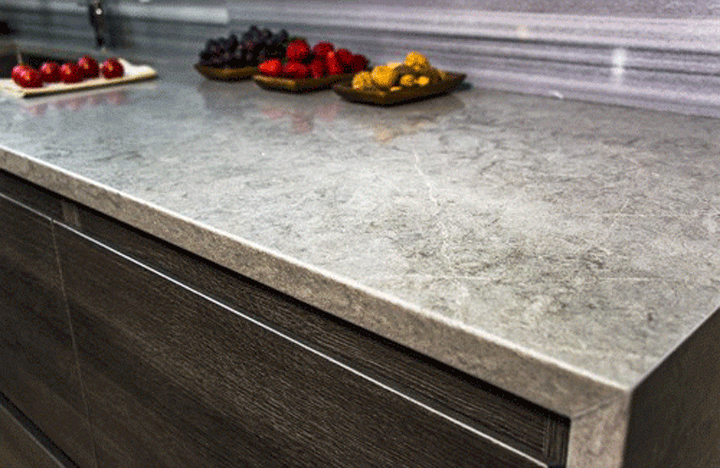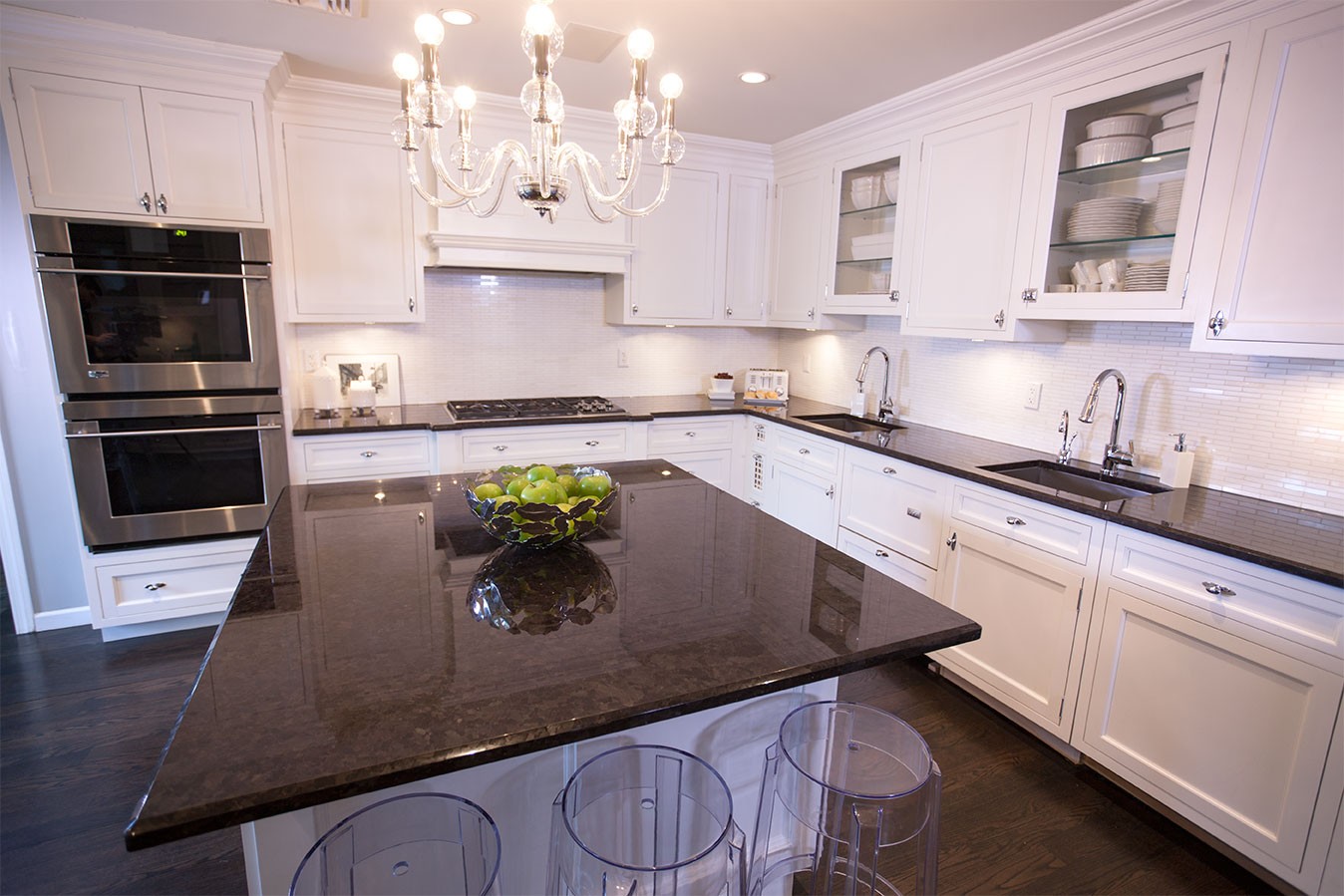
Table of Contents
Both granite countertops and marble countertops are among the most desired on the market. Both natural stones hold significant appeal for various reasons. But there are alternative surfaces on the market that can hold appeal to other homeowners. One of these alternatives to marble is cultured marble. This guide will inform you on what cultured marble is, what the material can be used for and how it compares to granite.
[get_quote]
What is Cultured Marble?
Cultured marble is a type of faux marble that is made from roughly 75 percent natural marble dust. This marble dust is combined with liquid polyester resin to make cultured marble surfaces. Cultured marble is used to make kitchen countertops, bathroom vanity tops, backsplashes, sinks and more. Cultured marble vanity tops have become particularly popular in recent years.
What is Granite?
Granite is one of the most beautiful and durable materials used in the home. This natural stone can be utilized as a kitchen countertop, bathroom countertop, backsplash and many other surfaces – including fireplace surrounds, outdoor kitchen countertops, and shower walls. Granite is truly one of the most versatile building materials you will be able to find.
Cultured Marble: Characteristics
Appearance
Since cultured marble is manufactured, there is a seemingly endless amount of color and style options available. Many of these options can mimic the look of natural marble.
Durability
Cultured marble is a very durable material. Unlike natural marble, these surfaces are non-porous, which helps them resist stains and various other damages. With proper care, your cultured marble surfaces can last a very long time in good shape.
You will need to be careful with cultured marble, however. The material is prone to chipping, scratching and can be damaged by excessive heat.
Maintenance
Since the surfaces are non-porous, you will not have to seal cultured marble. In addition, cleaning is a simple and quick process.
| Pros | Cons |
|---|---|
| Many colors and styles available | Does not hold the appeal of natural stone |
| Durable | Can chip, scratch and burn easily |
| Easy to clean and maintain |
Granite: Characteristics
Appearance
Granite is a beautiful stone that is quarried from the earth’s surface, cut into blocks that are then cut into slabs, and shipped off to a fabricator to make countertops and other home surfaces. It is one of the most popular countertop options among homeowners.
This natural stone can be found in hundreds of different colors and styles. Whether you are looking for light granite, dark granite, granite with veining or granite with speckles, you will be able to find something that appeals to you. There are few materials that can rival the beauty of a granite slab.
Durability
Granite is not only a popular countertop material because of its beauty; it is also one of the most durable materials you can install in your home. With proper care, which will not require significant effort, your granite surfaces can retain their amazing beauty and other positive qualities for many years to come. The stone is stain resistant, scratch-resistant and heat resistant.
[get_quote]
Maintenance
As if the stone didn’t already have enough benefits, granite is also a low maintenance material. It is very easy to clean and polish. Other than that, all you will really need to worry about it sealing. This should not be a major concern, however. Sealing is a very quick and simple process that is a DIY job. You will only need to re-seal granite about once per year. For an extensive guide on how to care for granite, check out this article.
| Pros | Cons |
|---|---|
| Naturally beautiful | Requires sealing |
| Many styles to choose from | |
| Durable | |
| Easy to maintain |
How Much Does Each Option Cost?
The table below compares the average costs for cultured marble countertops and granite countertops.
| Cultured Marble | $30 to $100 per square foot |
| Granite | $35 to $75 per square foot |
Cultured Marble vs. Granite: Which is Better for the Home?
While cultured marble can be manufactured to have an appealing look, there is nothing quite like the appearance of natural stone. In addition to this, while cultured marble has its benefits, granite is also a more durable material and is easy to maintain. The decision will ultimately be up to you, but because of the factors explained above, granite is the better choice for the home.
Whether it is a new countertop, vanity top, backsplash or any other surface, selecting the right material for your home is the key to any remodel. Choosing and having these materials installed can put a nice finishing touch on your home improvement project. This guide can help you evaluate whether cultured marble or granite will be the more ideal fit for your home.
















 The article helped me immensely
The article helped me immensely
 I’m now more informed on the subject
I’m now more informed on the subject
 I have questions about Marble.com
I have questions about Marble.com
 The article was not accurate at all
The article was not accurate at all
 There is a serious lack of information
There is a serious lack of information
 I have questions about Marble.com
I have questions about Marble.com